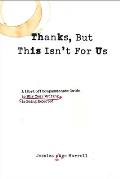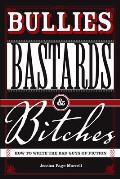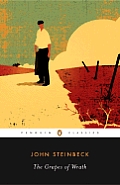
I really enjoyed
Jessica Anthony's posts about where story ideas come from and the importance of play. I work with a lot of fiction writers and it's fun to speculate on all those personalities living within the writer. I've never told them, but they twitch a lot. Even the most stable among them who practice yoga and drink hemp milk, or have been married for thirty years and mulch their roses. I write nonfiction, so my words come from my work, editing and teaching writers, sky watching and sunsets, and the always-present undertow of memory.
In the past few years I've taught a workshop called "Writing a Book That Makes a Difference," the title a rip-off of the terrific book by Philip Gerard. In this workshop I purloin some of Gerard's idea, but mostly I offer my own about how writers need to write from their passions, fears, concerns; the things that wake them at 3 a.m. Most writers need to write about things that haunt or hurt — if your writing is a cakewalk of one-liners and sweet characters or essays about strawberries and blessings, you're going to bomb. Now that's not to say that writing cannot be comedic or focus on happier issues. But good writing comes from truth and shadows; the blood, pain, the unanswerable questions of human existence, the lonely parts in all of us.
I always wrote as a kid — mostly poetry and short stories, so writing feels natural to me, despite the fact that I was raised to be a coward. This upbringing in yellow belliedness began in a small town (population about 10,000) in northern Wisconsin. Picture shoulder-high snow drifts in winter and a residual case of frostbite.
Many influences led to a chicken-shit approach to life — one I fight nearly every day and if I never fought it, I would never have written books, six now published. Because, while I'm not a snowboarding, mountain-peak-summiting, rock-climbing, wind-surfing daredevil so prevalent in the Northwest; if you think that writing is for wimps, you're sooooo wrong.
 I was raised in a female-dominated family, although on the outside, that's not how things looked. My maternal grandfather died when I was six, my mother had six sisters, and their only brother died as a toddler. The sisters were beauties of Irish-French-Native-American-German heritage and had the best legs in town. They married young, had children, and varying degrees of successful marriages.
I was raised in a female-dominated family, although on the outside, that's not how things looked. My maternal grandfather died when I was six, my mother had six sisters, and their only brother died as a toddler. The sisters were beauties of Irish-French-Native-American-German heritage and had the best legs in town. They married young, had children, and varying degrees of successful marriages.
But for all their beauty and sass and wise-cracking panache, my mother, her mother, and her sisters were plagued with fears of things that were pretty much benign. As in water, swimming, driving, rodents, bugs, bats, bears, travel, a forest, darkness and nighttime, being alone in a house at night, not to mention growing old and losing their looks. These days most of these fears would be called irrational, but back then, they formed a sisterhood of cowardliness as if it were the most normal thing in the world.
Here's an incident that has always stood out in memory. I was visiting my grandmother's on an early summer evening. I know it was early summer because the June bugs, a large beetle with metallic green wings, were batting against the screen door. This meant my grandmother would sweep their dead husks off the porch in the morning. They hatched in early summer and since their carcasses crunched underfoot they have always reminded me of kidney beans. I have never cooked with kidney beans. Never.
So anyway, picture a summer's night soft with fireflies flickering and June bugs thudding against the screen door and dusk falling. My aunts were in the kitchen seated around the grey Formica table and the front door opened. A large moth, called a miller, whisked indoors towards the kitchen light. You're wondering what a miller is? The wings of all moths are covered with fine scales that easily rub off. These scales reminded people of the dusty flour that covered a miller's clothing. They have a 1.5 to 2-inch wing span. With its fluttery appearance, the women jumped up shrieking and cringing in such horror it was as if a Grizzly had just burst into their midst. One of the men in the adjoining room, doubtless watching a ball game, rushed in to kill the marauder. I can remember so clearly their onslaught of terror and panic and even though I was probably in first grade, knew this was seriously weird behavior.
At any family gathering the women gathered with their bantering and jokes and reports of calamities and near misses — bats that landed in the chimney, mice sneaking into the cellar, so terrorizing that they took to their beds, the treacherous icy roads that brought on the shakes for days afterward, the things that went bump in the dark. Oddly, for all these tales, the women took up a lot of room in the world, with their cigarette smoke and secret laughter and winks. They cleaned a lot and tended kids and teased their hair into strawy updos. They sent their nieces to the store for their Winstons and tampons and cream of mushroom soup and hair spray instead of walking the four blocks. And they were brave in the ways that traditionally women are forced to be brave — keeping families functioning and caring for everyone.
But this irrational fear thing might have something to do with my grandmother's agoraphobia. Sometime in the 1940s my grandfather, a Clark Gable look-alike, left his wife and daughters and went off to build the Alaska Highway. And Grandma didn't set foot out the door while he was gone for about three years. She sent her daughters out into the world and her second oldest always shopped for her dresses. She went out a bit when I was a girl, but not a lot, and in my recollections she's perched on the arm of her couch peeking out the Venetian blinds at the comings and goings of her oddball neighbors or in her kitchen rocking chair, humming away.
 Back to the ever-simmering drama of childhood; a must for a budding writer. Adding to a coward-in-training family was the fact that our small town was teeming with perverts, peeping Toms, underwear-stealing deviants; a sort of Bermuda Triangle of one-man freak shows and huge families who looked like they came straight from The Grapes of Wrath. Only years later did I put labels to what I had witnessed or heard whispered about: incest, inbreeding, child abuse, pedophilia, and exhibitionism. As in the old man a few blocks away who was always giving girls candy and dimes. This was the age when kids told grown-ups nothing, so he talked girls into dropping their pants or bathing with him or touching him. (Just for clarification, I didn't take part because I think he preferred easier, younger prey.)
Back to the ever-simmering drama of childhood; a must for a budding writer. Adding to a coward-in-training family was the fact that our small town was teeming with perverts, peeping Toms, underwear-stealing deviants; a sort of Bermuda Triangle of one-man freak shows and huge families who looked like they came straight from The Grapes of Wrath. Only years later did I put labels to what I had witnessed or heard whispered about: incest, inbreeding, child abuse, pedophilia, and exhibitionism. As in the old man a few blocks away who was always giving girls candy and dimes. This was the age when kids told grown-ups nothing, so he talked girls into dropping their pants or bathing with him or touching him. (Just for clarification, I didn't take part because I think he preferred easier, younger prey.)
While these whack jobs existed throughout th